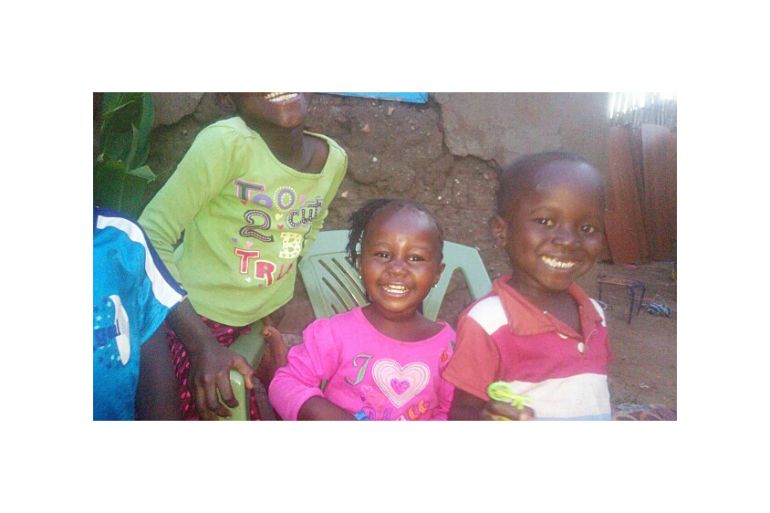South Sudan: The 3-year-old victim of renewed fighting
There were 15 children inside, hiding under the bed. The soldiers started shooting indiscriminately.

Wau, South Sudan – On the evening before her three-year-old granddaughter was killed by government soldiers, Mariana was adamant that she didn’t want to run. Her friends were contacting her to say that people were fleeing her hometown of Wau, in northwest South Sudan. Government soldiers were coming into the town, they warned, killing civilians and looting their homes.
But Mariana didn’t want to leave her family home and flee into the unknown.
“People were saying they were running out of Wau,” she said. “I said no, I’m not moving.”
As the violence escalated in other parts of town, Mariana’s sister, two of her daughters, and four of her grandchildren came to stay with her. Seeking safety in numbers, Mariana’s neighbours from both sides came to stay in her house too.
By the next morning, the threat had become more serious. Now it was not just the sound of gunshots that rang across the town, but the boom of heavy artillery. At 7:30am Mariana called another of her daughters, Raja, in South Sudan’s capital Juba.
|
|
“She called to say that they had started shooting again,” recalls Raja. “An hour later she called again to say it was serious, that there were people coming into houses, and that it was not safe to move around town. Then she called a third time to say that she wouldn’t be able to call again, because she had to hide.”
Mariana heard that people were seeking refuge at the United Nations base in the north of the town. Fearing that their lives were in danger, she and her family decided they would go there too. “Someone was going to pick us up to go to the UN camp at 10:30am,” she said. “But before we could leave the soldiers came.”
According to numerous local accounts of events, Sudan People’s Liberation Army soldiers from the Dinka tribe, the largest in the country and the tribe of President Salva Kiir, came into Wau on June 24. Almost completely unopposed, they began to terrorise members of other tribes in the town, known collectively as Fertit.
Four men broke into Mariana’s small compound, smashing the gate that divided her property from her neighbour’s house. Three of them wore the uniform of the government army, the SPLA, and were carrying guns. “They entered the house and they started shooting,” said Mariana.
The men seized Mariana’s 33-year-old daughter, Rosanna.
“They asked her where her husband was. She told them he was away in Juba and they started to beat her. They kept asking her if she was a Dinka. She said her husband was a Dinka and they said they would call him. They took her phone and all the money she had.”
Determined to find money, the soldiers forced their way into a small pharmacy business that Raja had set up in the grounds of the house. “They put a gun to Rosanna’s head and they made her open the pharmacy,” said Mariana.
![A man searches for belongings to salvage in a burned down house in Nazareth, on the outskirts of Wau after fighting in Wau displaced thousands of civilians [Charles Lomodong/AFP]](/wp-content/uploads/2016/07/da3c0340539a4c1fbe1423c86e70c4b5_18.jpeg)
“They destroyed everything. They scattered the drugs everywhere. They took some drugs with them, and they were looking for money, but they didn’t find any.”
Not satisfied, the soldiers continued to search the house, finding Mariana’s 50-year-old sister sheltering in the toilet. “They found her and they took her from there and they beat her,” said Mariana. “They took her phone and her money too.”
It was then that events began to take an even darker turn. As the soldiers went from room to room, more than a dozen young children, relatives of Mariana and her neighbours, were huddled in another building on the grounds.
“The children were in another tukul [a traditional local house made from mud bricks and thatch],” said Mariana. “The doors and windows were closed. There were about 15 children in the tukul hiding under the bed – my grandchildren and my neighbours’ children. They were there with the daughters of my two neighbours, Ria and Suweba.”
|
|
The soldiers went on to the veranda outside the tukul. Then they started shooting indiscriminately into the building.
“They shot inside from the veranda,” said Mariana. “They shot my three-year-old granddaughter and my neighbour’s daughter, Ria. After they fired the shots they ran away.”
Ria, 48, died immediately from her injuries. “We tried to call for help, but nobody came,” said Mariana. “My granddaughter died about two hours later.”
Mariana took the body of her granddaughter to St Mary’s Catholic Cathedral, which has become one of the main burial sites for victims of the violence in the town.
“We buried the baby in our compound,” said Father Natale, a priest at the church. “We also buried a 12-year-old girl, and 11 others.”
St Mary’s is now providing shelter to Mariana, her family and her neighbours. They are among more than 10,000 people staying at the church.
Humanitarian organisations report that more than 120,000 people have been displaced by the recent violence. By July 3, only nine days after the initial violence in the town, almost 20,000 of them were staying at a camp just outside the UN base, under the protection of UN military.
According to Mariana, aid agencies are helping, bringing medicine and water to the Catholic church. But conditions are tough.
“I’ve spoken to many people who have lost friends and relatives,” she says. “We are angry and we are hungry. We are just surviving.”
MORE on recent violence in Wau
![Men and women wait to be registered as displaced persons in a South Sudan Red Cross compound in Wau [Charles Lomodong/AFP]](/wp-content/uploads/2016/07/01480a5f3d9142c7a52eb193abf107b6_18.jpeg)